How One East Bay Craft Chocolate Maker Is Adapting to Skyrocketing Global Cocoa Prices
Selina Knowles, Communications Coordinator
May 2, 2024
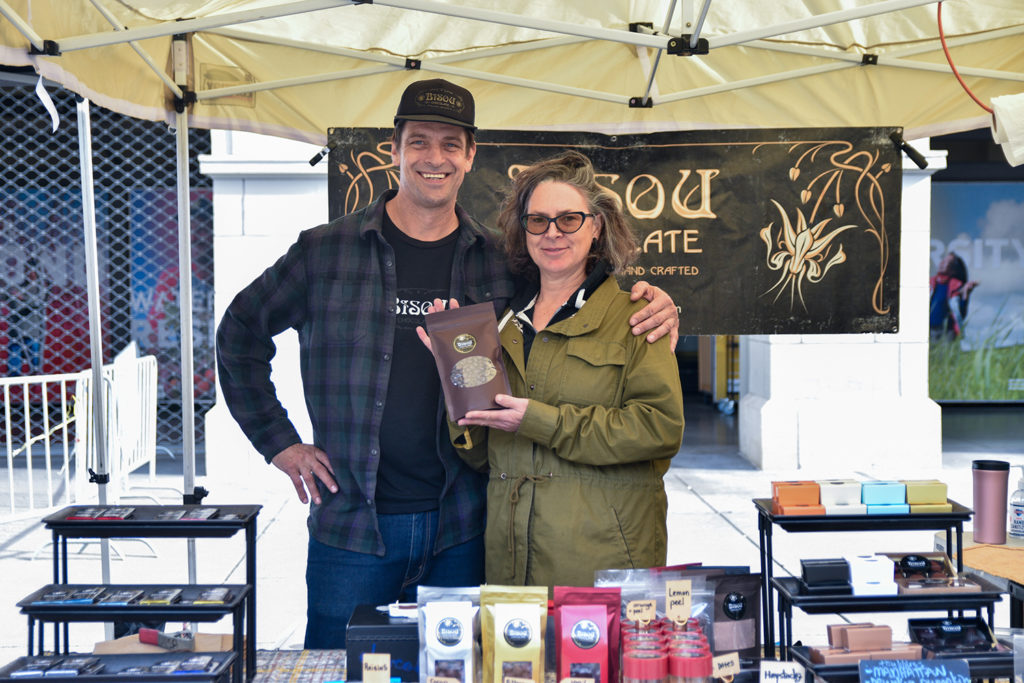
In April, cocoa prices skyrocketed to $11,000 per metric ton for the first time in the industry’s history—a 400% increase from 2023. “It’s unprecedented. It’s kind of a critical time for small chocolate companies,” says Eli Curtis, who co-founded the East Bay artisan chocolate business Bisou Chocolate with partner Tracey Britton. Chocolate lovers are starting to feel the bite, with chocolate prices having risen 38% since 2020 and 15% since the start of 2023.
Since the business’s start in 2010, Eli and Tracey have been the sole operators of Bisou Chocolate’s roastery in San Leandro, kitchens in Berkeley, and stand at the Saturday Ferry Plaza Farmers Market. In light of what Eli calls the “chocapocalypse,” and ahead of chocolate-shopping for Mother’s Day, Eli sheds light on what the bar-to-bean process looks like and how chocolate makers like Bisou are navigating the changing market.
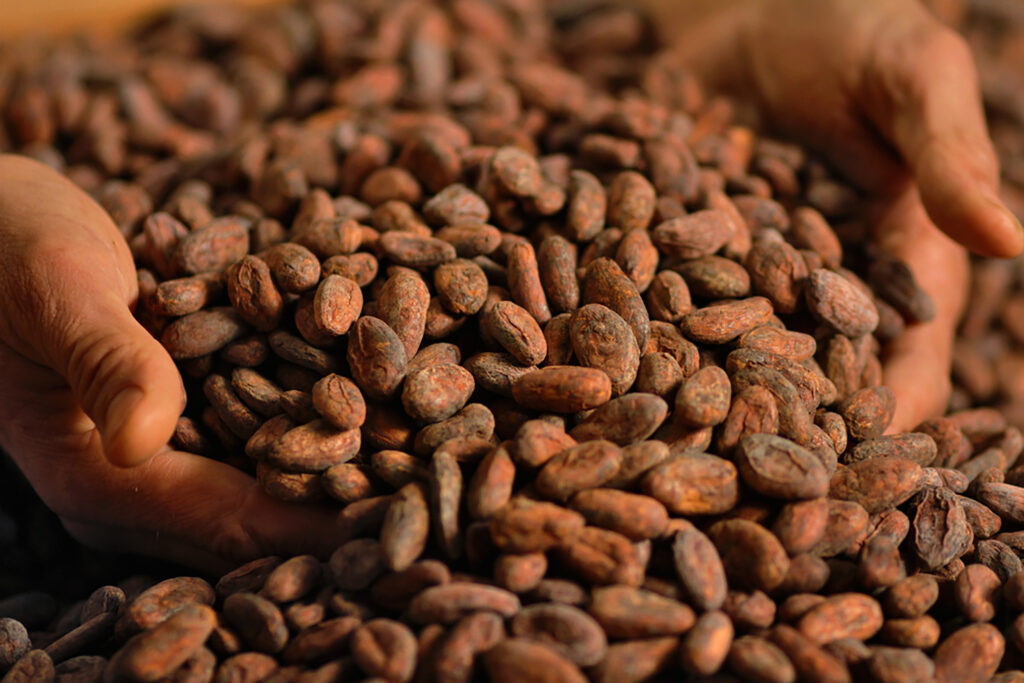
Rising Cocoa Prices Reflect Climate Change and a Fair Wage Fight
There are a few factors leading to rising cocoa prices, including a climate-change induced global cocoa shortage. The majority of cocoa is grown in West Africa, which has faced rising temperatures, partly caused by deforestation, and subsequent dry spells. Both conditions present challenges for cocoa production, which relies on plenty of humidity. The International Cocoa Organization estimates that the global cocoa supply will decline by almost 11% over the 2023-2024 season.
Additionally, the rising prices reflect an overdue fair compensation for farmers. “A lot of what’s happening in the cocoa market is really a price correction, because it hasn’t changed in 50 years,” says Eli. “The farmers were getting the same price in 2023 that they got in 1979.” However, even with the raised costs, farmers in Ghana still report that they are being underpaid.
On the processing side of chocolate, small chocolatiers like Bisou Chocolate will experience different impacts compared to larger, more industrialized chocolate operations. As an example, Eli says that the big chocolate companies have bought the next two years’ worth of cocoa butter, a key ingredient in confections.
“In the last two weeks, [the price of] cocoa butter has gone up 800%,” says Eli, referring to early April. At Bisou, they use cocoa butter in almost all products. “If you don’t have the purchasing power to buy a lot right now while the prices are high, then you can’t get it at all.”
This is just the start of how Eli expects rising prices to exacerbate differences between small and big chocolate businesses. Industry expert James Cadbury expects that up to half of small chocolate businesses will close within the next year.
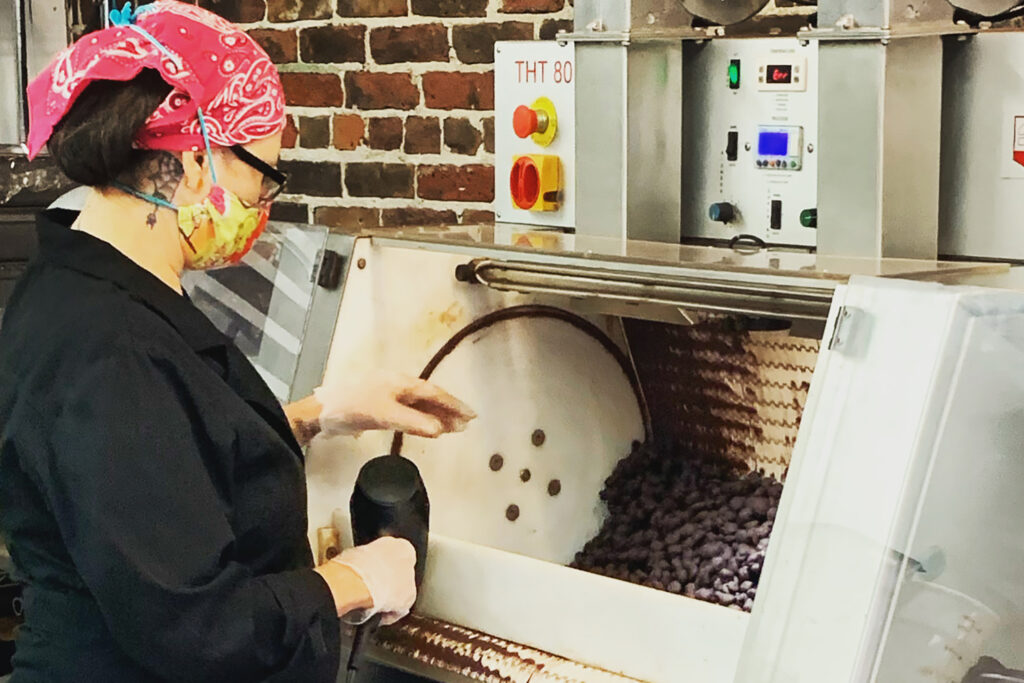
How Sourcing Sets Small and Big Chocolate Businesses Apart
“Knowing where your cocoa comes from is a big part of what differentiates small chocolate makers from these big industrial chocolate companies,” says Eli. “Most of the supply chain in cocoa is opaque. They don’t know where their cocoa beans came from, or if there was deforestation or child labor in their supply chains.”
Finding an ethical source of cocoa can be challenging, between choosing from millions of cocoa farmers and considering the high rate of child labor in the industry. The United States Department of Labor reported that more than 2 million children were engaged in dangerous labor in cocoa-growing regions in West Africa.
World leading chocolate companies are making efforts to uproot child labor from within their cocoa supply chains, but they have also missed several deadlines set to hold them accountable.
Bisou prioritizes working with suppliers who are modeling Transparent Trade principles, which means that there is verifiable data for each step of the cocoa supply chain. Eli and Tracey often work with Uncommon Cocoa, which shares an annual transparency report along with information about the farm and prices paid for each cocoa variety, such as Bisou’s favorites, Maya Mountain and Tumaco.
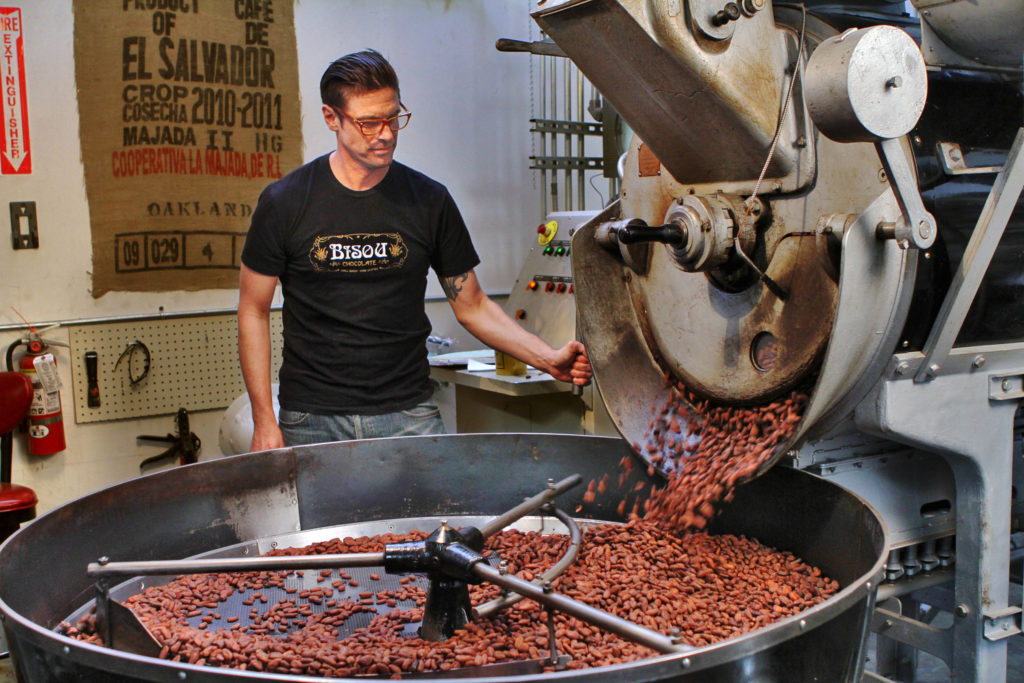
Processing Cocoa from Bean to Bar in the East Bay
After acquiring the beans, Bisou’s processing begins at their roastery in San Leandro, where the beans are carefully roasted in a vintage coffee roaster. Eli notes that while this is done with steady patience at Bisou, the norm for industrial chocolate makers is using excessively high roast temperatures, in some cases burning the beans.
From there, Eli transports the beans to Bisou’s Berkeley kitchen and runs them through a vibratory sieve and feeder. This separates the hulls of the beans from the nibs, the small pieces of crushed cocoa beans. Eli takes great care in separating the beans and the hulls, which he suggests is possible as a small operation, compared to less oversight and attention to detail in larger operations.
Once the nibs are separated, they are ground and liquefied. This takes about five days of intense grinding in multiple machines. Next, Eli brings the product to Tracy, who expertly tempers the chocolate to prepare it for each of Bisou’s offerings, such as hand-rolled truffles and chocolate-covered California nuts and raisins.
“Chocolate is actually the only food we eat as a solid that’s a liquid at our body temperature because of the unique properties of cocoa butter,” says Eli. “When the chocolatier tempers chocolate, they are getting the right crystals to form in order for it to be shelf stable, look shiny, and have a nice snap to it.” This is a delicate process, and Tracey and Eli take pride in their high-quality chocolate products.
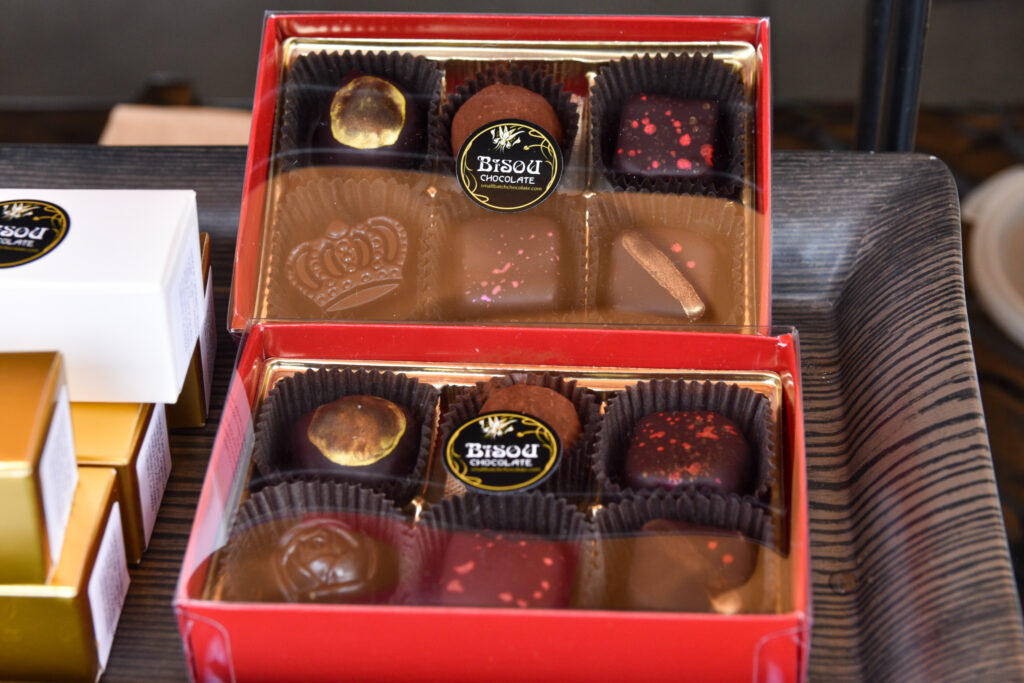
Adapting to the “Chocapocalypse” with New Cocoa Machinery
While the spike in cocoa prices was largely unexpected, and prices continue to be high, currently at $8,500 per ton, Eli is determined to keep Bisou in operation.
In some ways, small-batch artisan chocolate makers are less jolted by the price changes; Bisou has already been paying up to 10 times the industry standard to ensure that farmers receive a fair price. “While we pay premiums to our amazing farmers that are above even these record highs, a trickle down effect has suddenly put our livelihood in peril,” says Eli.
The unattainable prices for cocoa butter, essential to Bisou’s operations, are a possible existential threat to their business, he explains. He adds that “operating without access to cocoa butter is out of the question.” In response to this “pricing out” of the cocoa butter market, Eli and Tracy are fundraising to purchase their own cocoa press, a machine that would enable them to make their own cocoa butter in-house.
“We have raised our prices twice now, but we had never raised them before. Making more of our product from the raw material is going to actually save us money in the end,” says Eli. Bisou could use their cocoa butter for all of their confections and possibly offer it alongside their other retail products in their Berkeley shop as well as provide it at an affordable price for other local businesses.
“The history of Bisou has been one of adapting to changes in the market. This might be the biggest change we’ve had to adapt to, but I think we can survive,” says Eli.
Support Bisou Chocolate at the Ferry Plaza Farmers Market on Saturday, and consider donating to their GoFundMe campaign for a cocoa press.
Topics: Climate change, Farmers market, Small business
